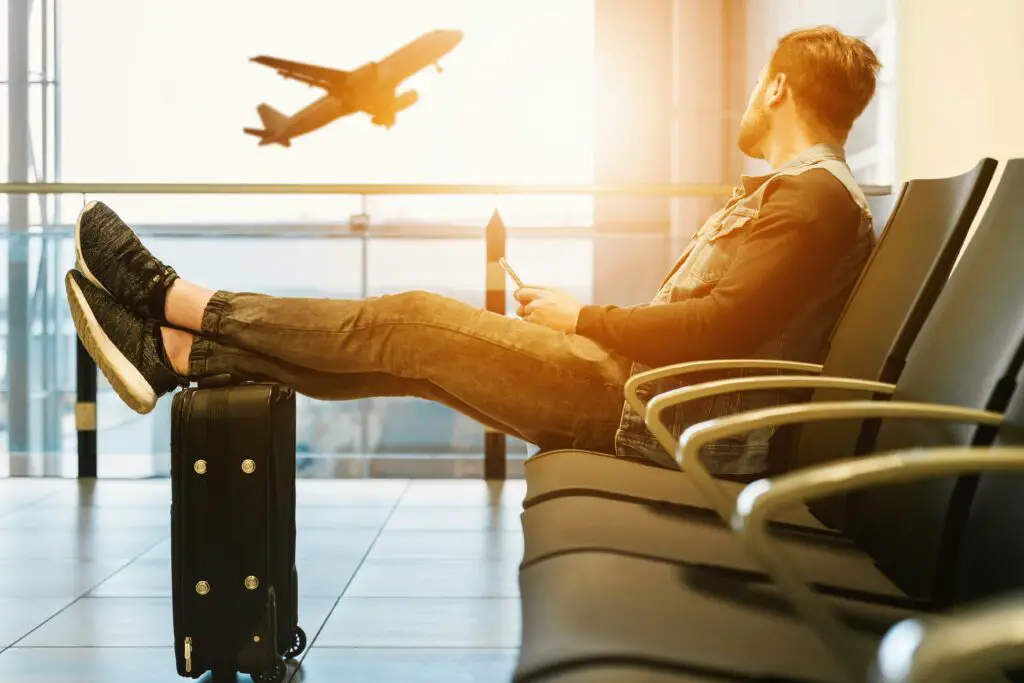Related Posts
A viral video that broke out on social media is the subject of a big debate over airlines’ baggage policies, consumers’ rights, and the transparency of these rules. Attorney Ugo Lord, who is famous for simplifying law-related videos, has also discussed the situation. The footage in dispute illustrates a single argument between a passenger and an airline representative. The dispute is about the incident in which the staff of an airline denied a passenger boarding due to the size of her bag.
The airline staff claims the bag doesn’t meet the size criteria. The traveler, nevertheless, asserts that the bag fits after she removes her coat and tightens the straps.
Legal Analysis by Ugo Lord
In this video, Ugo Lord expressed his considerations as a legal expert, which might greatly help the audience. The airline’s Baggage Policy clearly states that a personal item, including straps and handles, can not be larger than 8x18x14 inches. If a passenger can break down the handles and rearrange the straps of their bag, it will fit in the tester and won’t violate public regulations.
The woman in the video decided to compress the bag’s straps, fold the handles, and put it in the tester. Ugo Lord says this action does not violate the airline’s policy.
Furthermore, Lord points out that any ‘hidden policies’ about not being able to remove and wear a coat are not publicly displayed and, hence, cannot be enforced by the airline. If enforced, such policies could potentially make the airline liable for not allowing the passenger to fly despite her being right about her bag.
Airline Consumer Protections and Overbooking

This incident has shifted the spotlight onto the larger context of airline consumer protections and the common practice of overbooking flights. Overbooking, which involves selling more tickets than available seats on a flight, is a widespread strategy of airlines. Aiming at maximizing revenue and accounting for passengers who fail to show up, overbooking can sometimes result in passengers involuntarily losing their seats.
Federal law protects passengers’ rights when they are involuntarily denied boarding due to overbooking. The U.S. Department of Transportation (DOT) has established regulations governing such practices. These rules stipulate that passengers have the right to certain forms of compensation, which could be monetary or alternative transportation arrangements.
The amount of compensation depends on the length of delay the passenger experiences due to being involuntarily bumped off a flight. For instance, no compensation is required if the airline arranges for alternative transportation that gets the passenger to their destination within an hour of their original arrival time. However, in cases where the delay exceeds two hours (or four hours for international flights), the airline has to provide more significant compensation.
In extreme cases, passengers may choose to sue an airline. However, this is a complex and time-consuming process, requiring a thorough understanding of passenger rights, relevant laws, and airline regulations.
Conclusion
The viral video and Lord’s reaction underline the importance of transparency in airline policies and the need for passengers to be aware of their rights. Frontier Airlines’ baggage policy situation illustrates the possible confusion in figuring out and implementing these rules. It highlights the significance of policies designed with openness and a timely information channel between airlines and customers.
Ugo Lord’s analysis refers to hidden policies and highlights the possibility of legal trouble for the airline industry should those policies be applied without prior notice. This experience teaches travelers to know about their rights and the specifics of the rules of the selected airlines.

